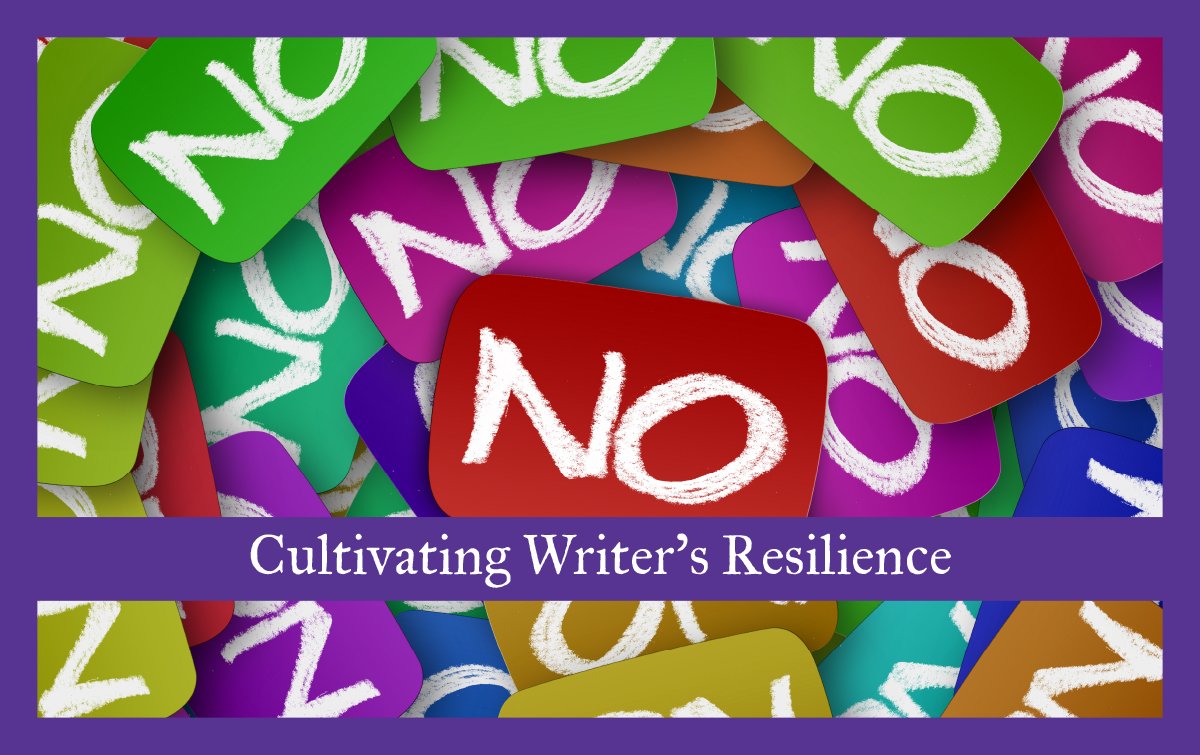
Do you have a plan to survive the countless rejections that will come your way? Create that plan!
Ah, this tip from Dr. Maisel pinpoints a truth difficult for most of us to accept. When we create and share our writing with the world, rejection is inevitable. It can take many forms and come from various sources: other writers in critique groups or workshops that you attend, readers, agents, publishers, even family and friends. The safest and easiest plan for surviving rejection is simply to avoid getting any…by not sharing your work. No, no. Don’t take me seriously, please. That’s no strategy—not if you are a writer wanting to have readers.
 Not every reader will love, or even like, our work.
Not every reader will love, or even like, our work.
Appealing to all readers is an impossible and impractical wish. So identify the types of readers you want to attract. Get to know your current audience if you are already published. Learn about and become acquainted with the people you most want to read your work.
Then forget about the rest. If an avid self-help reader denounces your Southern gothic novel, why waste precious writing time worrying over it? That person is not your reader. Period.
This type of rejection is an easy one to overcome. The mismatch is obvious. But what if the rejection is closer to the mark? Either in relationship to your genre or to you?
Sometimes, when we finish a work, we are tempted to share it proudly with those closest to us. Unless we have a history otherwise, we expect our friends and family to be our cheerleaders. Even when friends and family have historically been supporters, I still advise writers to consider carefully who they share their work with at first. We must be steadfast guardians of our dreams as writers, so it serves us well to know who could be a dreamkiller and who can assist us in building our rejection armor.
At first, seek feedback from friends you can trust to deliver their opinions to you with love and kindness, but honesty.
You likely know who they are already, from your past interactions with them. Even with them, it will feel safer not to share, but you may be surprised by the support you get. All writers need feedback, so perhaps start with a writer friend. A reciprocal exchange can help you both build your courage to share and develop your abilities to handle feedback even when it isn’t all positive. After you have grown more comfortable with this level of sharing, step up to critique groups or workshops where writing is passed around or read aloud. Even though all writers are not necessarily helpful and polite to one another, most are. If you want useful feedback, give useful feedback. Delivered with respect and honesty, both parties benefit. What if you submit your manuscript to an agent who has a successful history marketing the genre you write, but you get a response you feared? Or worse, no response at all—which is, after all, rejection implied, right? How does a writer weather that?
An advance tactic for gracefully handling potential rejection from an agent or publisher is to dive deeply into your next project while you wait for their response to your submission. Being entrenched in a new manuscript can take the edge off a rejection. Stay focused on that new project through completion and then, after some time away from the first one, come back around to it with a fresh eye. Did you get valuable feedback you can act on or do you need to move on to the next agent or publisher on your list?
What if you submit your manuscript to an agent who has a successful history marketing the genre you write, but you get a response you feared? Or worse, no response at all—which is, after all, rejection implied, right? How does a writer weather that?
An advance tactic for gracefully handling potential rejection from an agent or publisher is to dive deeply into your next project while you wait for their response to your submission. Being entrenched in a new manuscript can take the edge off a rejection. Stay focused on that new project through completion and then, after some time away from the first one, come back around to it with a fresh eye. Did you get valuable feedback you can act on or do you need to move on to the next agent or publisher on your list?
Rejection from agents and publishers goes into two categories: 1) completely out of my control, and 2) must learn from.
If you get a form letter rejection from an agent or publisher, it’s time to move on. You cannot know what that agent was facing the day they opened your manuscript. A myriad of ridiculous, or truly serious things may have happened. Remind yourself that once your manuscript reached its destination, you have no idea about the circumstances surrounding that agent or publisher’s look at it. What is your lesson in that kind of rejection? No matter how good the writing is, things that have absolutely nothing to do with us or the quality of our work can sometimes derail us. If you are lucky enough to get more than a form letter rejection, the agent or publisher may have shared something that could improve your manuscript. If so, take it to heart. Rejection is an opportunity to improve your writing. So take a deep, cleansing breath and get back to work. Then resubmit if you have been invited to, or go to the next agent or publisher on your list. As counterintuitive as it may sound, the best plan for surviving rejection is to get plenty of it. I know that sounds painful, but start by gradually allowing yourself to step into the sharing arena. You do not have to jump in with both feet.Additionally, acknowledge that rejection of your writing is not a rejection of you.
Separating the two is difficult, particularly when we first begin writing in earnest, and especially when we first start to share. But we—complex, magnificent, multifaceted creatures—are not being denounced as human beings when someone doesn’t care for our latest manuscript. It will feel like it, but we are not. This may sound trite or even contradictory, but the more you share, i.e., the more you put yourself out for possible rejection, the easier it becomes to take. You will learn and improve your work. You will develop a fortitude that will allow you to withstand the rejection, whatever its source. And this resilience will permit you to stand absolute behind your work and in support of yourself. Remember this and grow resilient.
This may sound trite or even contradictory, but the more you share, i.e., the more you put yourself out for possible rejection, the easier it becomes to take. You will learn and improve your work. You will develop a fortitude that will allow you to withstand the rejection, whatever its source. And this resilience will permit you to stand absolute behind your work and in support of yourself. Remember this and grow resilient.
This creativity tip is inspired by and loosely based on The 97 Best Creativity Tips Ever! by Dr. Eric Maisel (2011), and is used with his permission.

Gina Edwards is a retreat leader, a certified creativity coach, and a book editor. She is also a writer, so she’s intimately familiar with the challenges and elation that come with being one.
She supports all writers—published and aspiring—who want to write as an act of courageous and necessary self-expression.
Walking the writer’s path hand-in-hand with her clients and students, she helps them establish a writing practice and define a creative life on their own terms.

My mother, who was also a fiction writer, kept a file of what she called “good rejections.” In fact, any rejection that makes any comment at all–even a negative comment–is a good rejection because it shows that the reader was engaged enough and read far enough to form an opinion and then write it down and share it with you, the writer. When that “good rejection” comes from an agent or publisher you are beginning to get traction.